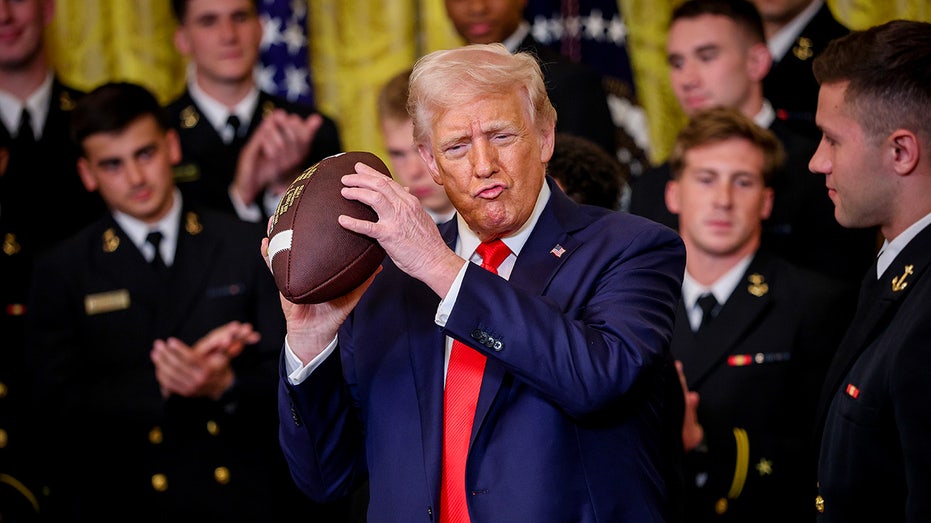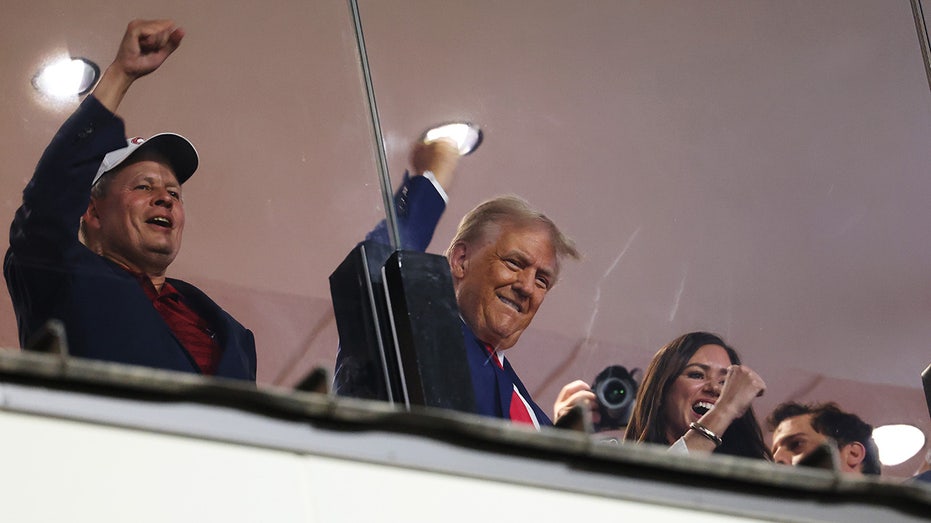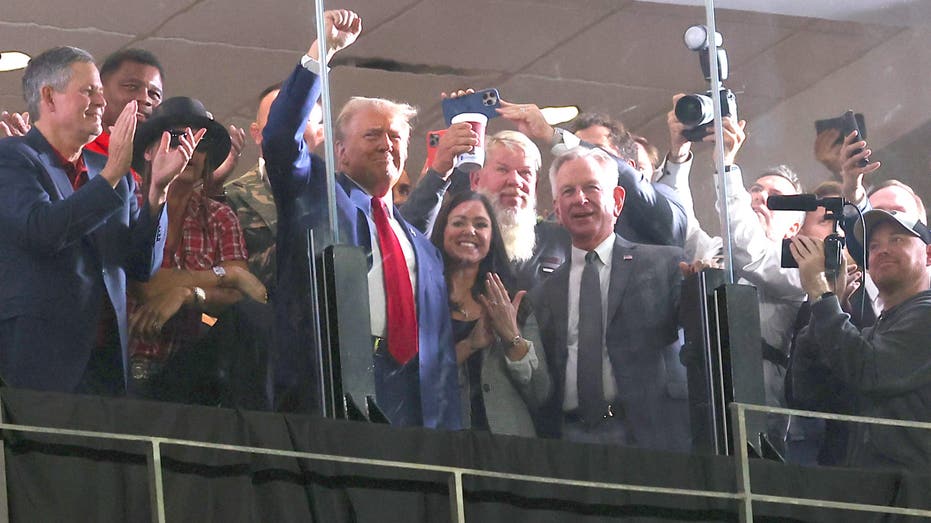

It's no secret that college athletics are, for lack of a better term, a mess.
The transfer portal is at an all-time high, in large part because it's essentially become a pay-for-play system. It got to the point where President Donald Trump even signed an executive order to set new restrictions on payments to college athletes back in July.
In a recent interview with FOX Business, Ohio State athletic director Ross Bjork praised Trump as "a huge fan" who "wants to protect" college athletics.

U.S. President Donald Trump, accompanied by Navy Midshipmen co-captain linebacker Colin Ramos (R), holds up a football during a presentation ceremony for the Commander-in-Chief’s Trophy to the Navy Midshipmen football team in the East Room of the Whi (Win McNamee/Getty Images / Getty Images)
He also said there is no other choice but for Congress to get involved.
"There's a lot of things that we have to offer at Ohio State to be a voice, hopefully a reason to be a leading edge of this. But in terms of structure to get clarity, there's really only one body who can do it, and that is Congress," Bjork said. "Like it or not, the NCAA, based on the legal landscape, it's hard for us to govern as an NCAA organization without getting sued. And so we're pursuing Congress. There's a Score Act in the House, hopefully it makes it to the House floor. We know there's challenges that it would have on the Senate side, but we hope there's some negotiation, we hope that we can provide clarity. We need to eliminate all the state-by-state laws because we can't govern that way. We need some kind of legal liability protection that we don't get sued all the time. And then we need to recognize that these are students. A lot of people think employment is the panacea, the way to provide clarity, but it actually complicates it even more and puts, I think, a lot of things at risk. So those are the things that we're looking for in some legislative action."
Bjork also believes that the number of legal cases would continue to rise without the government's help.

President Donald Trump watches the Alabama Crimson Tide against the Georgia Bulldogs in a college football game at Bryant-Denny Stadium on Sept. 28, 2024, in Tuscaloosa, Alabama. (Michael M. Santiago/Getty Images / Getty Images)
"If we don't have any clarity at the federal level, you're going to see state-by-state law take effect and continue to kind of thrive. You're going to see continued legal threats. You're going to see continued discussion around ‘should athletes be employees or not?’ One of the things I like about President Trump's executive order is he asks the Department of Labor to talk about employee status — should they or should they not be? So we need to answer that question at some point in time. But you'll continue to see uncertainty. … If we continue to have uncertainty, then I think the game, the sanctity of the game, and the competitiveness, our coaches will continue to be frustrated by it, and we need to be able to provide them a roadmap in this sort of bumpiness the last couple of years. It's hard to provide them with what the true roadmap is."
All that said, Bjork is "optimistic" that all can return to a new normal that is generally good for college sports.
"There's so much to offer for college athletics. I mean, the things that we provide, the amount of scholarship dollars that are now in the system, we added 91 scholarships at Ohio State, majority of those for women's sports. … So I'm optimistic because the collegiate model and what college athletics and college sports means to our country, what it means to young people, what it means to our fans, who want to come and support our young people, it's worth it. It's worth saving because we provide so many opportunities. "Yeah, it's bumpy and uncertain. There's a lot of leveraging. There's a lot of politics. There's true politics at play that we've never had to deal with before. But I just think that we owe it to the young people who want to receive an education, who want to play games, who want to be developed as young people. …

President Donald Trump watches the Alabama Crimson Tide against the Georgia Bulldogs in a college football game at Bryant-Denny Stadium on Sept. 28, 2024, in Tuscaloosa, Alabama. (Kevin C. Cox/Getty Images / Getty Images)
"What [athletes] want is they want an experience, they want to know the rules, they want to know what they sign is legitimate, they want to know that the institution is behind whatever compensation, revenue share, NIL, they want to know that we're supporting, that's what they want. And so we owe the industry clarity of purpose and clarity of rules. So that's why I’m optimistic."
Trump's order prohibits athletes from receiving pay-to-play payments from third-party sources. However, the order does not impose any restrictions on NIL payments to college athletes by third-party sources.
